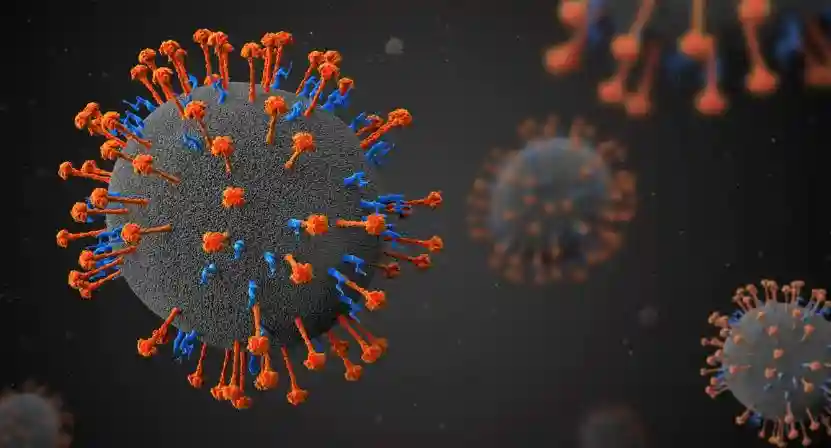Dogs, our faithful companions, can also be vulnerable to various diseases. One such concerning ailment is the Nipah virus, which, although rare, can have severe consequences. As responsible pet owners, it is vital to be well-informed about the symptoms of the Nipah virus in dogs to ensure their well-being. In this article, we will delve into the details of this deadly virus, its symptoms, and how to safeguard your beloved furry friend.
Understanding Nipah Virus
Before we explore the symptoms, let’s get acquainted with the Nipah virus. This virus primarily affects animals, including dogs, and can also transmit to humans. It falls into the category of zoonotic viruses, which means it can be transferred from animals to humans. The Nipah virus 1is typically associated with fruit bats and can cause severe respiratory and neurological problems in infected individuals, both canine and human.
Key Facts about the Nipah Virus
Here are some essential facts about Nipah virus2 infection:
- Clinical Presentations: Nipah virus infection in humans can manifest in various ways, from asymptomatic (subclinical) cases to acute respiratory infections and even fatal encephalitis.
- Varied Fatality Rate: The case fatality rate for Nipah virus infection is estimated to be between 40% and 75%. However, this rate can vary significantly during outbreaks, depending on the local capabilities for epidemiological surveillance and clinical management.
- Multiple Transmission Routes: Nipah virus can be transmitted to humans through various routes, including contact with infected animals, such as bats or pigs, or consumption of contaminated foods. Additionally, direct human-to-human transmission is possible.
- Natural Host: Fruit bats belonging to the Pteropodidae family serve as the natural host for the Nipah virus. Understanding their role in the transmission cycle is crucial for disease control.
- Lack of Specific Treatment or Vaccine: Currently, there is no specific treatment or vaccine available for Nipah virus infection in either humans or animals. The primary approach for human cases is supportive care to manage symptoms.
- Urgent Research Need: The World Health Organization’s 2018 annual review of the R&D Blueprint list of priority diseases highlighted the urgent need for accelerated research and development concerning the Nipah virus. This emphasizes the importance of ongoing efforts to better understand and combat this virus.
What are the Symptoms of Nipah Virus in Dogs?

When it comes to the Nipah virus, early detection is critical for effective treatment. Here are the symptoms to watch out for:
Fever: One of the initial signs of the Nipah virus in dogs is an unexplained fever. If your dog has a persistent high temperature, it could be an indication of an underlying issue, including the Nipah virus.
Respiratory Distress: The Nipah virus can lead to respiratory problems in infected dogs. Watch for symptoms such as coughing, sneezing, or labored breathing. These signs should not be taken lightly, as they can rapidly worsen.
Neurological Symptoms: The virus can also affect a dog’s nervous system. Look for signs like confusion, disorientation, seizures, or paralysis. If your dog displays any of these symptoms, seek immediate veterinary attention.
Loss of Appetite: A sudden loss of appetite is another red flag. If your dog refuses to eat or shows a significant decrease in food intake, it may be due to an underlying illness like the Nipah virus.
Excessive Salivation: Dogs infected with the Nipah virus may drool excessively. This is a result of the virus affecting their neurological functions.
Muscle Weakness: Muscle weakness or trembling can also be observed in infected dogs. This can make it difficult for them to move or stand.
Sudden Death: In severe cases, the Nipah virus can lead to sudden death in dogs. This emphasizes the importance of early detection and immediate treatment.
Prevention and Controlling Nipah Virus in Dogs
Preventing Nipah virus infection in dogs is vital for their well-being and to reduce the risk of transmission to humans. Here are some essential measures to consider:
- Avoid Contact with Wildlife: Since fruit bats are natural hosts of the Nipah virus, it’s crucial to prevent your dog from coming into contact with wildlife, especially bats. Ensure that your dog’s living area is secure and free from potential sources of exposure.
- Sanitization: Maintain a clean and sanitized environment for your dog. Regularly disinfect their living area, food bowls, and water containers to minimize the risk of contamination.
- Vaccination: Although there is currently no specific vaccine for Nipah virus in dogs, it’s essential to keep your dog up-to-date on all recommended vaccinations to bolster their overall immune health.
- Quarantine and Isolation: If you suspect that your dog has been exposed to the virus or is displaying symptoms, isolate them from other animals and seek immediate veterinary care. Quarantine measures can help prevent further transmission.
- Stay Informed: Stay informed about any local outbreaks or health advisories related to Nipah virus. Knowledge of the situation in your area can help you take proactive measures.
By following these preventive measures, you can reduce the risk of Nipah virus infection in your dog.
Conclusion
As pet owners, our dogs’ well-being is our top priority. Being aware of the symptoms of the Nipah virus in dogs is crucial for early detection and timely treatment. Remember, the Nipah virus can also pose risks to humans, so vigilance is key. If you suspect that your dog may have been exposed to the virus or is displaying any of the mentioned symptoms, don’t hesitate to consult a veterinarian. Your quick action could make all the difference in your furry friend’s life.
Frequently Asked Questions (FAQs)
Can the Nipah virus in dogs be transmitted to humans?
Yes, the Nipah virus is zoonotic, meaning it can be transmitted from dogs to humans. Close contact with an infected dog’s bodily fluids can pose a significant risk.
Is there a vaccine for Nipah virus in dogs?
As of now, there is no specific vaccine available for Nipah virus in dogs. Prevention primarily involves avoiding exposure to infected animals.
How can I protect my dog from Nipah virus?
To protect your dog, avoid contact with wildlife, especially bats. Keep your dog’s living area clean and sanitized, and seek immediate veterinary care if you suspect any symptoms of the virus.
Are there any specific regions where Nipah virus is more common in dogs?
Nipah virus has been reported in various regions, but it is most prevalent in areas where fruit bats are known carriers. Staying informed about local outbreaks is essential.
Can Nipah virus in dogs be treated?
Treatment for Nipah virus in dogs primarily involves supportive care to manage symptoms. However, the prognosis is often poor, so early detection is crucial.
Is there a cure for Nipah virus in dogs?
Currently, there is no cure for Nipah virus in dogs. Treatment focuses on alleviating symptoms and providing comfort.
Footnotes, Sources & References
- Nipah Virus ↩︎
- Nipah Virus Fact Sheets ↩︎







Leave a Comment
You must be logged in to post a comment.